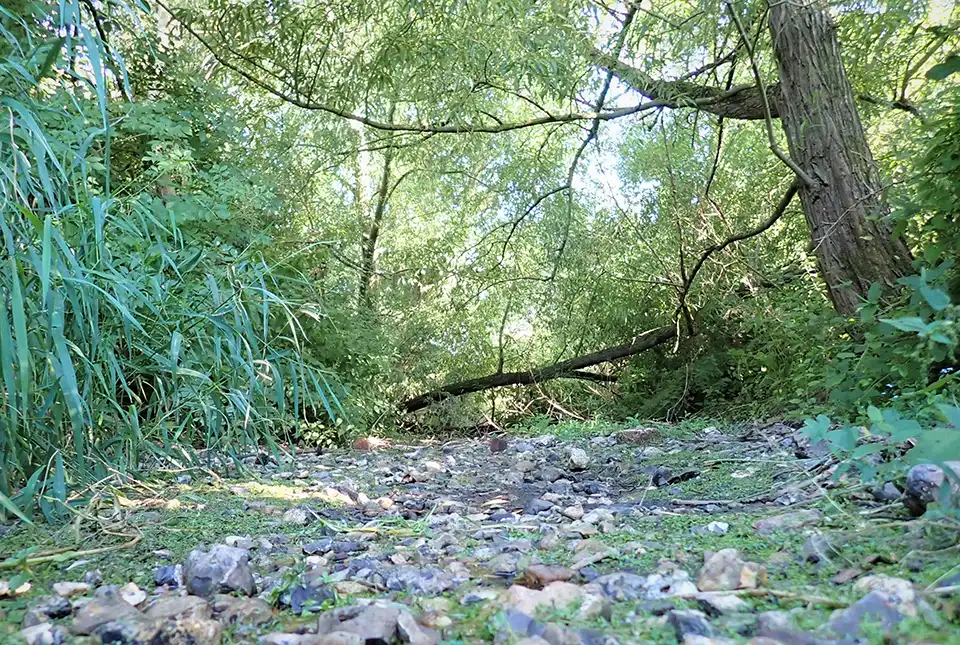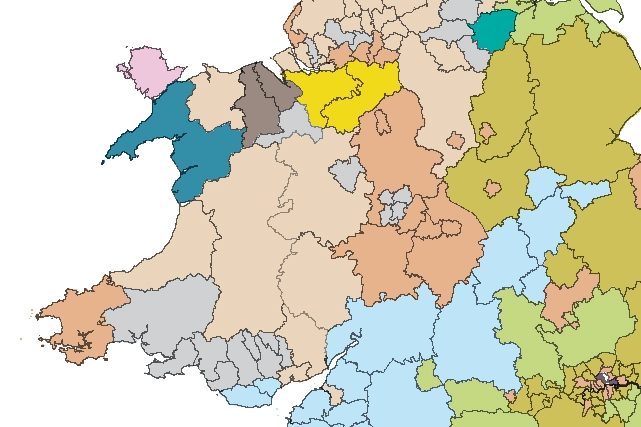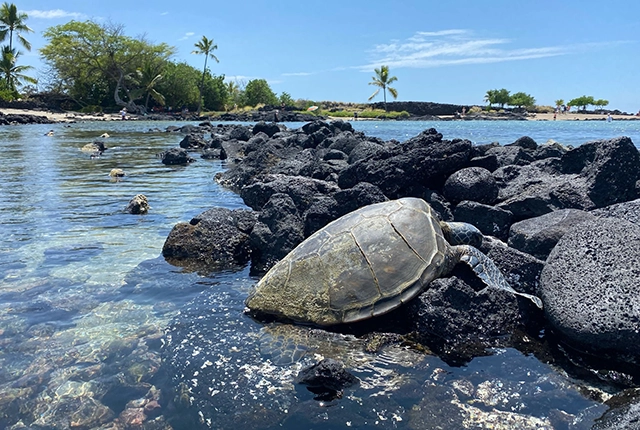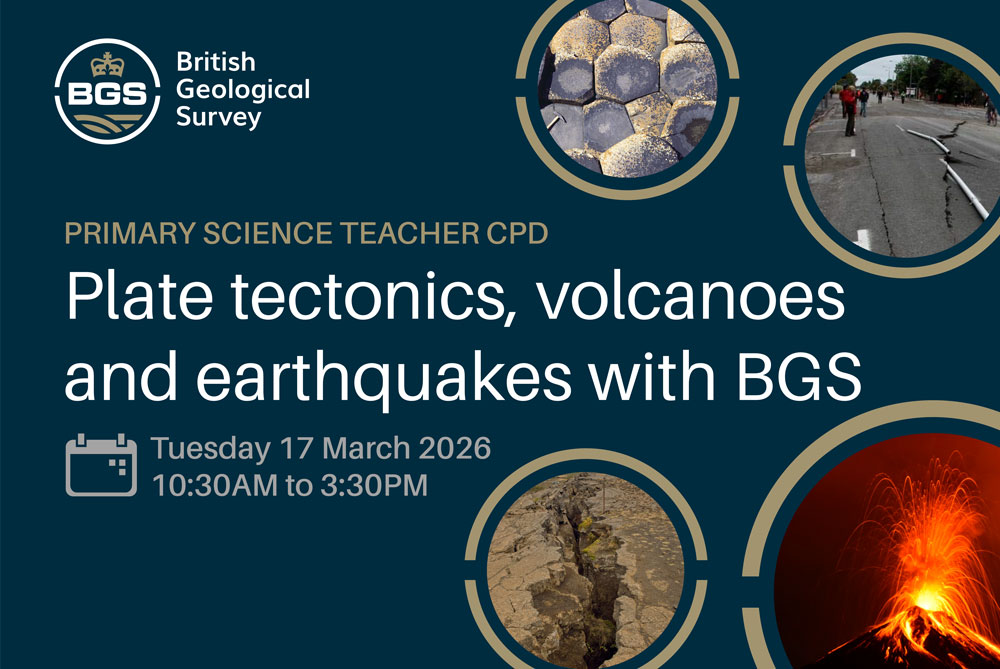BGS publication included in Environment Agency’s review of drought in the UK
A BGS essay on groundwater and drought has been included in the Environment Agency’s review of the research and scientific understanding of drought.
05/12/2023 By BGS Press
The Environment Agency (EA)’s Chief Scientist’s Group commissioned a series of essays in 2022, aiming to collate and appraise the current research and scientific understanding of drought and its effects. Published on 28 November 2023, the review is the EA’s largest-ever consultation of drought experts in England and includes an essay by John Bloomfield, the groundwater resources science lead at BGS, and Christoper Jackson, BGS Head of Environmental Modelling.
The essay, Groundwater droughts in England: a review of current understanding and knowledge gaps, and opportunities and priorities for future research, addresses droughts in the groundwater component of the terrestrial water cycle in England and identifies a series of knowledge gaps that frame future research needs.
It includes an overview of groundwater drought research, observational evidence for groundwater drought in England, modelling and forecasting of groundwater droughts and a summary of the knowledge and research gaps, including opportunities for future research.
Thirteen knowledge or research gaps are outlined in the essay by BGS, with associated opportunities for future research also identified. These include:
- a systematic review of methods used to define meteorological, hydrological and other types of drought
- establishing instrumentation to characterise drought propagation through the full terrestrial water cycle in catchments representative of the range of hydrogeological settings in the UK
- mapping the sensitivity of groundwater systems in England to drought
The EA’s Chief Scientist’s Group want to build on the review’s findings and identify where further research could deliver benefits for drought management and resilience, both now and in the future.
Groundwater can provide a resilient supply of water and supports ecologically important flows during shorter droughts; however, it is particularly susceptible to prolonged droughts. We were very pleased to contribute to this initiative from the Environment Agency as it gave us the opportunity not only to benchmark BGS’s extensive work on groundwater drought characterisation, analysis, modelling and forecasting, but also to work with partners to identify the outstanding research gaps and needs across the terrestrial water cycle.
John Bloomfield, groundwater resources science lead at BGS.
This review was commissioned by the EA’s Chief Scientist’s Group, which provides scientific knowledge, tools and techniques to enable us to protect and manage the environment as effectively as possible.
Alongside the review, the Environment Agency’s Chief Scientist’s Group has also produced a blog, Creating a better place: exploring the science of droughts.
The Environment Agency works to create better places for people and wildlife and support sustainable development.
Relative topics
Related news

Map of BGS BritPits showing the distribution of worked mineral commodities across the country
18/02/2026
BGS’s data scientists have generated a summary map of the most commonly extracted mineral commodities by local authority area, demonstrating the diverse nature of British mineral resources.

MARC Conference 2025: highlighting the importance of conferences to PhD students
16/02/2026
BGS and University of Nottingham PhD student Paulina Baranowska shares her experience presenting her research on nuclear forensics at her first international conference.

Funding awarded to map the stocks and flows of technology metals in everyday electronic devices
12/02/2026
A new BGS project has been awarded Circular Electricals funding from Material Focus to investigate the use of technology metals in everyday electrical items.

New UK/Chile partnership prioritises sustainable practices around critical raw materials
09/02/2026
BGS and Chile’s Servicio Nacional de Geología y Minería have signed a bilateral scientific partnership to support research into critical raw materials and sustainable practices.

Extensive freshened water confirmed beneath the ocean floor off the coast of New England for the first time
09/02/2026
BGS is part of the international team that has discovered the first detailed evidence of long-suspected, hidden, freshwater aquifers.

Funding secured to help mitigate ground risk in UK construction sector
05/02/2026
The BGS Common Ground project has been awarded new funding to help unlock the value of ground investigation data.

After-school kids’ clubs
Event from 25/02/2026 to 25/03/2026
An after school club for junior geology enthusiasts

Can sandstones under the North Sea unlock the UK’s carbon storage potential?
02/02/2026
For the UK to reach its ambitious target of storing 170 million tonnes of carbon dioxide per year by 2050, it will need to look beyond the current well-studied geographical areas.

Quaternary UK offshore data digitised for the first time
21/01/2026
The offshore wind industry will be boosted by the digitisation of a dataset showing the Quaternary geology at the seabed and the UK’s shallow subsurface.

Suite of ten new soil reference materials released
02/01/2026
BGS has a longstanding track record of producing high-quality reference materials and has released ten new soil reference materials.

Perth and Kinross tops the UK’s earthquake activity charts for 2025
29/12/2025
Seismologists at BGS have published data on the number of seismic events over the past 12 months with over 300 earthquakes recorded.




